Not only are we working from home, food can be delivered at the tap of an app, we can communicate without getting out of bed, the cinema has come to our living room, and anything our hearts desire can be summoned within 24 hours. Writer Chas Newkey-Burden investigates whether new technology combined with the cost of living crisis has made it all too easy to stay home, and asks the experts for their views
Nobody will forget those long lockdowns when we rarely left our houses, the high street came to our doorsteps and entertainment was via your TV, smartphone or laptop.
However, while for some they were oppressive and unsettling experiences that denied social contact with friends and loved ones, for others – including myself – it was all oddly enjoyable.
I caught up with more friends on Zoom in the first two months of lockdown than I had in two years, I’d never felt so connected. I loved being in bed minutes after watching the screening of a play rather than shivering on a train platform, or having to leave the match five minutes before the end to miss the traffic. More than anything, I loved not being expected to go, or be, anywhere.
And it’s not just me.
IKEA’s Life At Home Report 2022 found that one in four of us have pretended to have plans because we wanted to stay in instead. People are hiding at home, making excuses to not go out, and telling little white lies to avoid meeting up with people.

Who needs to go to a crowded, expensive bar when you can socialise from the comfort of your own home?
“The definition of ‘hermitude’? Upfront honesty about not attending social events simply because one doesn’t care to.”
Global financial turbulence has taken the place of Covid, forcing us to watch every penny and live in a kind of self-imposed economic lockdown.
The Collins English Dictionary included the new word ‘permacrisis’ for 2022. Not to be outdone, the Urban Dictionary has pressed the noun ‘hermitude’ into popular currency. The definition? “The attitude one develops from not wanting to be social, being flaky to avoid socialisation, and eventual upfront honesty about not attending social events simply because one doesn’t care to.”
Just in the nick of time, the metaverse is arriving: a virtual world that can take us anywhere by simply wearing a headset. Ergo, WEGO.
We will soon be sitting in ‘office’ meetings, shaking hands or high-fiving digital avatars of our colleagues, eating Sunday lunch with our families via cyberspace, travelling right into virtual cinemas, concert halls, football stadia and even holidaying – all without opening our front doors.
This baffling future is within touching distance, and means our homes will increasingly be the places we spend the majority of our time for enjoyment and accomplishment, as well as work. Some think this is a troubling development, for others it opens-up a world of possibilities…

Learning new skills via artificial technology is just around the corner
It’s a brave new world… embrace it
Be cautious of the consequences
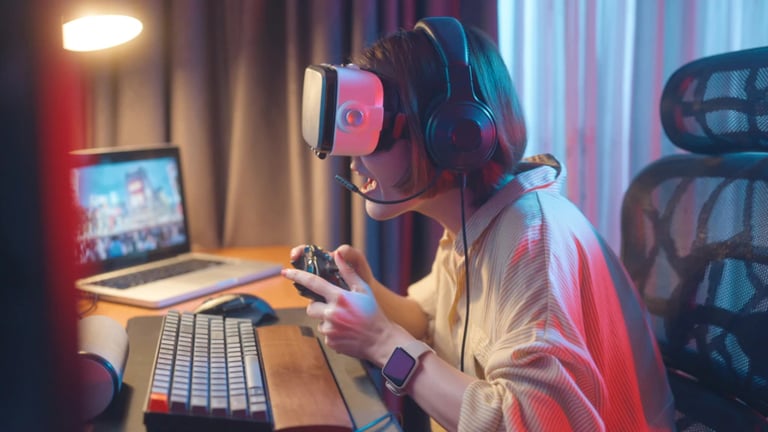
+
“Don’t just fit the old stuff into a different way of living”
Marie Gentles – Behavioural advisor
“Anything that makes us think or grow is positive. Young people are comfortable communicating online rather than in person. They’re like: “What’s the problem? We’re happy!” Let’s embrace the future and the advantages on offer. If we can expand our thinking on how we do things, we can learn how to make the best of this new world, rather than how we just fit the old stuff into a different way of living.”
Marie Gentles works for the UK government and received an OBE for her services to education
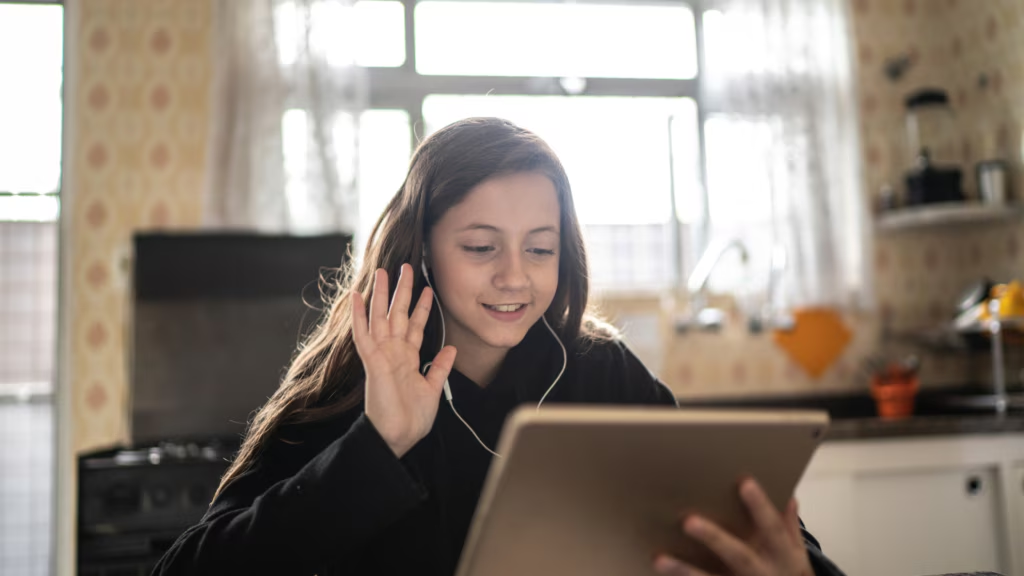
–
“Social anxiety is a factor”
Lucy Maddox – Clinical psychologist
“During the pandemic younger people had an additional, digital, social network which meant they could continue to socialise when they weren’t leaving the house. Where this gets tricky is if your world shrinks so much that online connections are the only thing available to you. Social anxiety then becomes a factor that can limit access to positive in-person experiences. That said, if a virtual reality platform offers opportunity or connection you wouldn’t otherwise be able to have, then it can be a force for good.”
Lucy Maddox is a consultant clinical psychologist and the author of A Year to Change Your Mind: Ideas from the Therapy Room to Help You Live Better
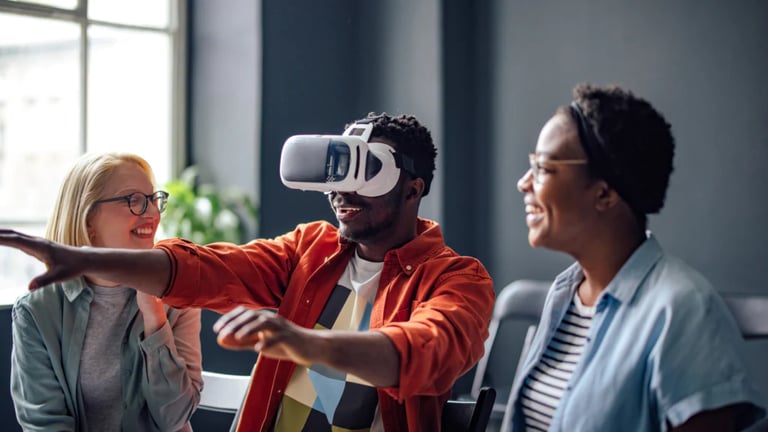
+
“A headset will act like your house keys”
Eaven Portillo – Technology expert
“The metaverse will add to what we know and can see around us and enable us to customise our environment in a myriad of detailed ways, making us more productive, more creative, and happier. We are most likely going to get a version of Google Glass or Snapchat Spectacles, but on steroids — small, practical and filled with technology we can’t quite picture yet. This headset will then act as your entry or login into the different sets of metaverses, the way your house keys enable you to, well, enter your house. As our homes become de-facto offices and technology gets better, we will be able to tailor our surroundings down to each subtle detail, creating an environment that inspires. Exciting, isn’t it?”
Eaven Portillo is the COO of Sortium, a blockchain gaming company, and co-founder of CryptoGene
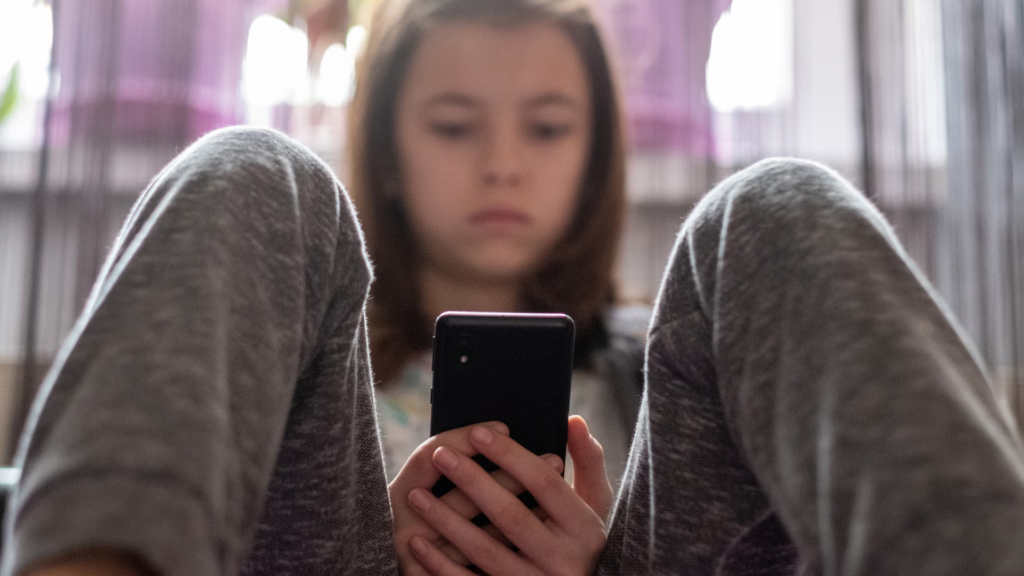
–
“We’ll need to consider desensitisation as people enter increasingly more lifelike virtual worlds”
Bernard Marr – Futurist
“The metaverse is an iteration of the internet that gives us a far more immersive experience. It will change our leisure time (VR games are already here, ABBA Voyage is a virtual concert experience), how we shop (IKEA was a pioneer with their Place app, which uses tech to place furniture within our home or office space), education (teachers in Poland use VR game Half-Life: Alyx in science), healthcare (surgeons already have augmented reality technology to guide certain procedures), and travel (in the metaverse, we’ll be able to go virtually anywhere in the world). However, there is also a downside and we’ll need to consider privacy, protection for children, mental health concerns, equal access to tech, legal issues including hacking and also desensitisation as people enter increasingly more lifelike virtual worlds.”
Bernard Marr is a futurist, influencer and thought leader in the fields of business and technology. His latest book is Business Trends in Practice: The 25+ Trends That Are Redefining Organisations
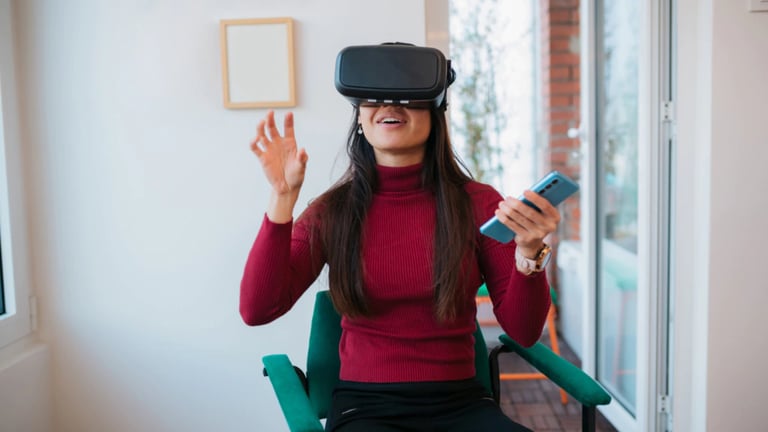
+
“We shouldn’t be scared”
Matt Navarra – Social media consultant and analyst
“Augmented reality, virtual reality and video-conferencing tools are nothing to be scared about. I can have a conversation with my sister in Canada that goes beyond anything on FaceTime. By wearing a device on my face, the lighting, effects and sound all combine to make me truly believe that she’s in the room. To be teleported into this space is amazing.”
Matt Navarra has over 15 years of industry experience, working with some of the world’s most popular brands, including Meta, Google and the United Nations

–
“It’s less WFH and more Homing From Work”
Jemma Fairclough-Haynes – Employment specialist
“A lot of employees are reporting loneliness. With everything from Zoom to Uber Eats, they don’t leave the house because they don’t have to. Before they know it, they’ve not spoken to anyone face-to-face all day. This has negatives for people who live alone, don’t have a huge social circle or the living space to enjoy working from home. They say it feels less like they’re ‘working from home’ and more like they’re ‘homing at work’, which is bad for mental health.”
Jemma Fairclough-Haynes is a public speaker and CEO of Orchard Employment Law in the UK

+
“Remote working could be a great leveller”
Julia Hobsbawm – Future of work consultant
“A lot of people thought all the power lived in the office and they would miss out on the invisible power plays that happen when you bump into your boss in the lift. But women and people in minorities pointed out much of that worked against them, so a new way of working could be a great leveller. Inequalities are now being talked about and, finally, addressed.”
Julia Hobsbawm OBE is a consultant about the future of work, and author of The Nowhere Office: Reinventing Work and the Workplace of the Future
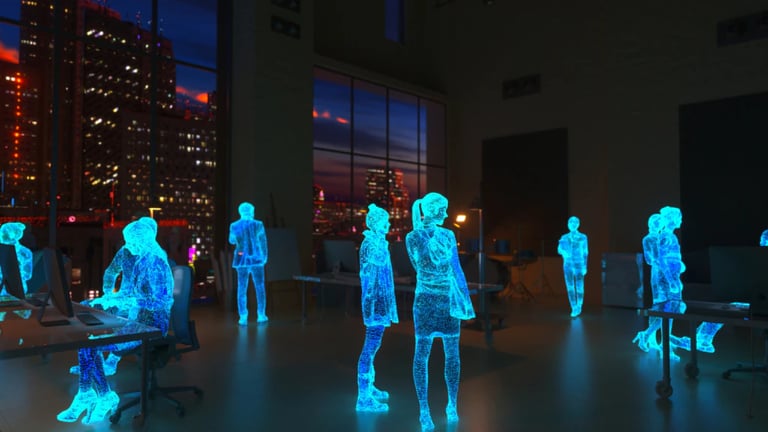
–
“I’ve seen the metaverse – and I don’t want it”
Keza MacDonald – Gaming expert
“I have seen what virtual worlds can do for people. I have spent my entire adult life reporting on them, and what people do in them and the meaning that they find there. I’m now the one standing here saying that we don’t want this. Meta has patented technology that could track what you look at and how your body moves in virtual reality in order to target ads at you. Is that the future – to have our attention continually tracked and monetised, even more so than in real life? I don’t trust these people with the future. The more I hear about the metaverse, the less I want to do with it.”
Keza MacDonald is an author and Video Games Editor at the Guardian UK
Picture credits: iStock
